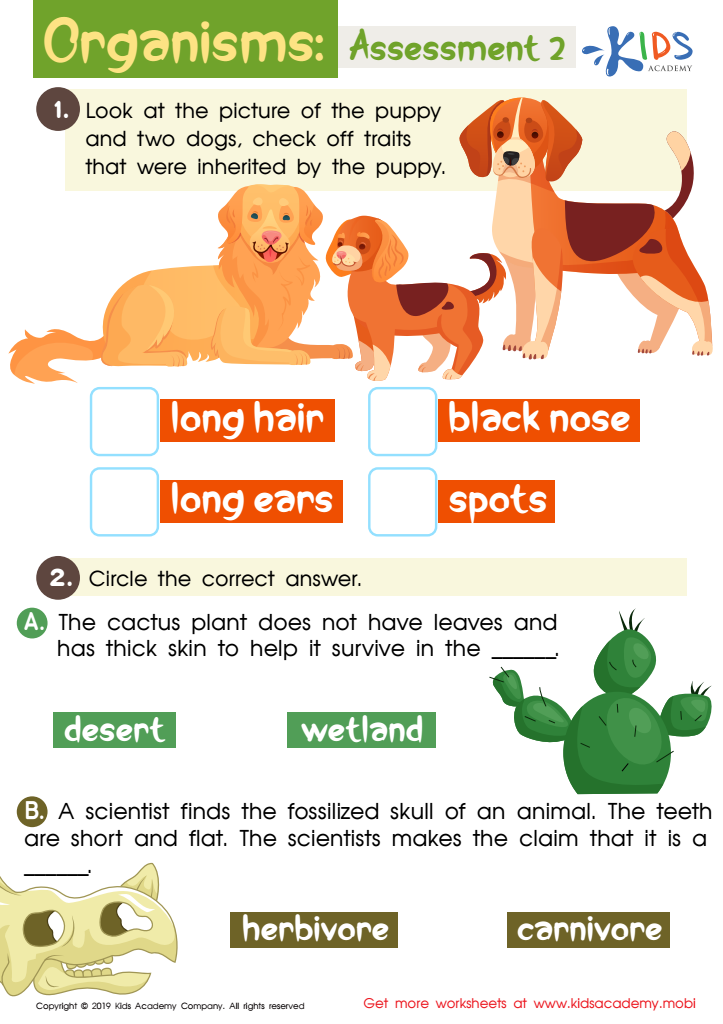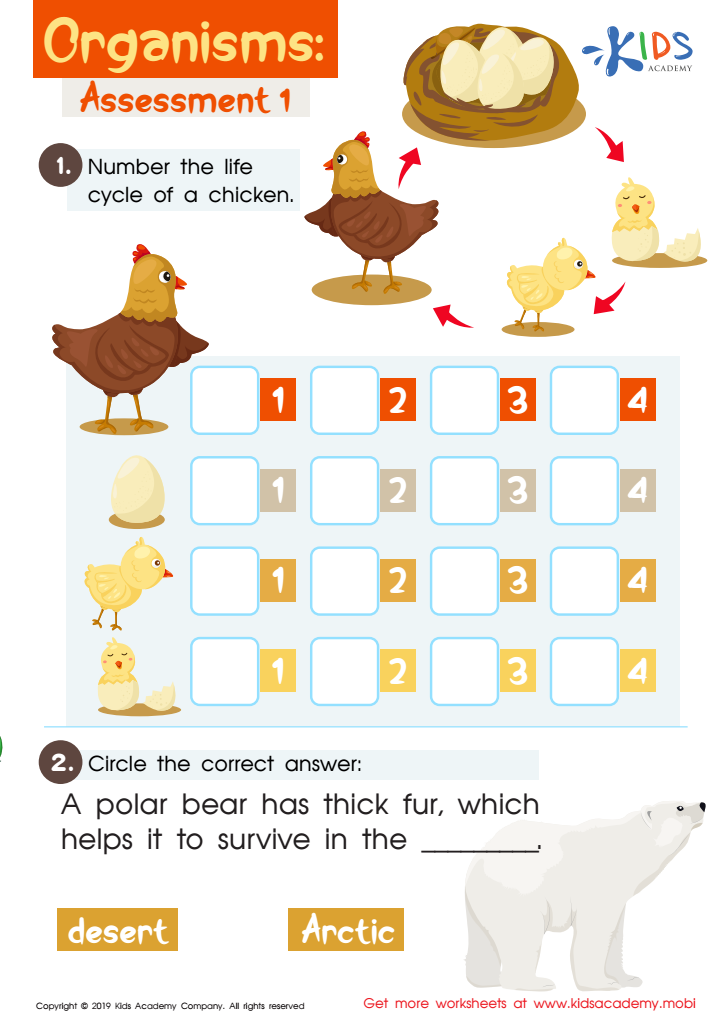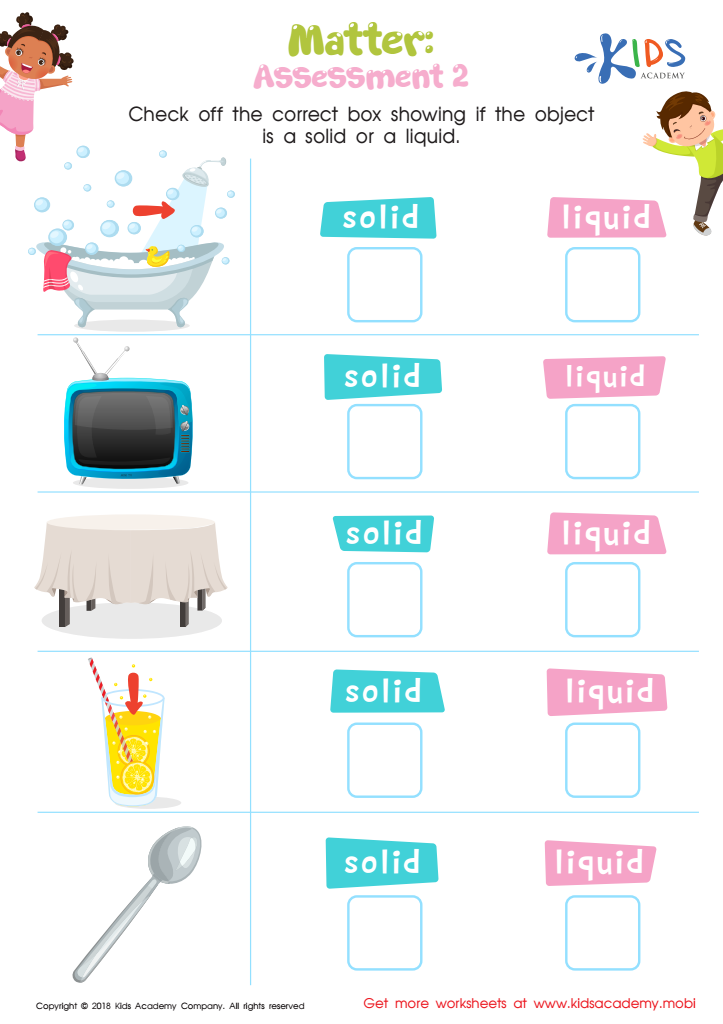Science worksheets activities for Ages 8-9
6 filtered results
-
From - To
Explore the Wonders of Science with Our Engaging Worksheets!
Delve into the fascinating world of science with our comprehensive collection of Science Worksheets Activities! Designed to spark curiosity and promote hands-on learning, these worksheets cover an array of topics tailored for young aspiring scientists. From exploring the mysteries of the solar system to understanding the intricacies of the human body, our activities cater to a wide range of interests. Perfect for classroom use or at-home exploration, these science worksheet activities encourage critical thinking, foster a love for discovery, and make learning an adventure. Embark on a scientific journey today and unleash the potential of young minds with our captivating worksheets!


Organisms: Assessment 2 Worksheet


Organisms: Assessment 1 Worksheet


Ecosystems: Assessment 2 Worksheet


Ecosystems: Assessment 1 Worksheet


Matter: Assessment 2 Worksheet


Matter: Assessment 1 Worksheet
Science worksheets activities are an invaluable tool within the educational sphere, particularly when it comes to making complex scientific concepts accessible and engaging to students. These activities are designed to complement theoretical knowledge, providing a practical and tangible approach to learning that can significantly enhance understanding and retention of information. Here are several reasons why science worksheets activities are so beneficial.
Firstly, science worksheets activities foster active learning. Unlike passive learning methods, which may involve merely listening to a lecture or reading from a textbook, worksheets require students to engage directly with the material. This active involvement helps to solidify understanding by encouraging students to apply what they've learned in a structured format. Through the completion of these activities, students are able to explore concepts in depth, allowing for a deeper comprehension of the subject matter.
Moreover, science worksheets activities cater to various learning styles. Whether a student is a visual, auditory, or kinesthetic learner, worksheets can be tailored to suit their unique needs, offering diagrams, experiments, or interactive tasks. This versatility ensures that every student has the opportunity to grasp scientific concepts in a way that resonates with them most effectively.
Additionally, worksheets provide immediate feedback to both students and educators. As students work through the activities, they can quickly identify areas of misunderstanding or difficulty, allowing for targeted learning and improvement. Similarly, educators can assess the effectiveness of their teaching and adjust their strategies as necessary, ensuring that their instruction meets the needs of their students.
Furthermore, science worksheets activities encourage critical thinking and problem-solving skills. Many worksheets present scenarios that require analysis, hypothesis formation, and experimentation, challenging students to think critically and creatively. This not only enhances their scientific knowledge but also equips them with valuable life skills.
In conclusion, science worksheets activities are an essential component of science education. They offer a practical, engaging, and versatile approach to learning, making complex concepts more accessible and enjoyable. Through these activities, students not only gain a deeper understanding of science but also develop crucial skills that will benefit them throughout their academic journey and beyond.

 Assign to the classroom
Assign to the classroom












